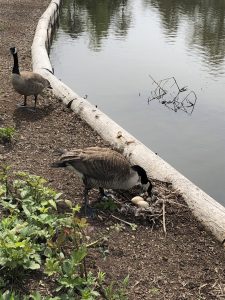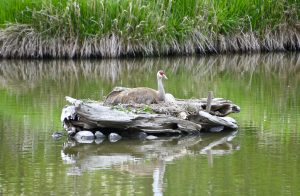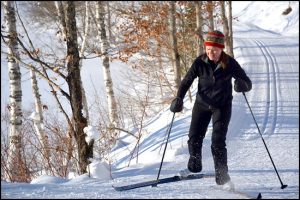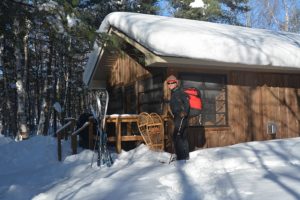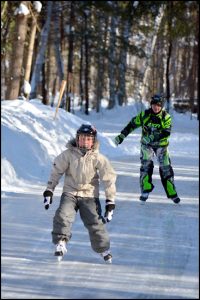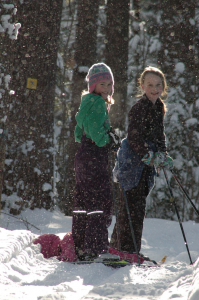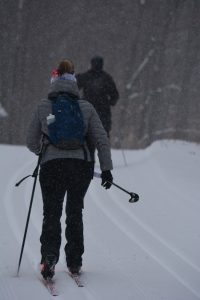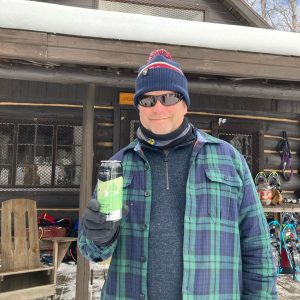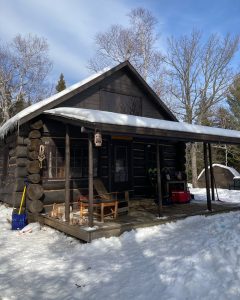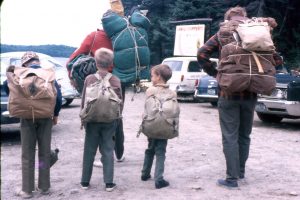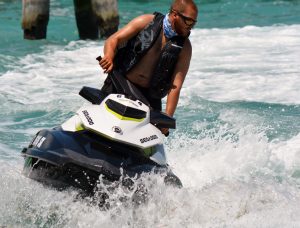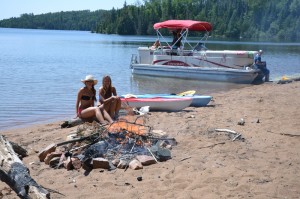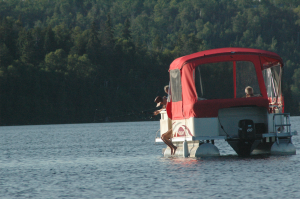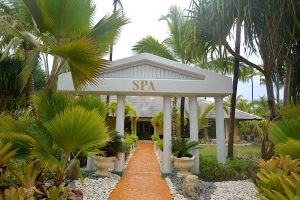There it was, hanging from the rafters at the back of the garage. It was an old wood and canvas canoe. It was a vintage Minto, in fact, built in the same classic design as the Peterborough. I remember the day we picked it up. It was summer, 1973, and we were camping at Killbear Park north of Parry Sound. We rose early and dad drove my brother and me across to Minden, where Sandy had one of Mae Minto’s canoes waiting for him. I remember when we first saw it. The canoe was beautiful – the wood glowed, and the green painted canvas gleamed. It was my older brother’s first major purchase in life; bought with money he had earned working on a dairy farm at Bar River.
Seeing it hanging there at my parent’s Muskoka River home stirs up a lot of emotions and buried feelings. It looks miserable, worn and lonely, and a long way from the water. I know my parents would never want to part with the canoe, which had belonged to their oldest son. I also know that they didn’t quite know what to do with it. I’m sure it stirred up difficult memories for them, of a life lost. Each tear of the canvas, broken rib and split piece of planking were part of a life, part of who their son had been. With the canoe, he had challenged the wildest of rivers, and explored the remotest lakes.
I stroke her worn canvas sides, feel the punkie keel and run my eyes over the cracked ribs. I remembered her beauty, and her woeful condition at first makes me sad. But were these scars or beauty marks? The canoe was worn and battered because we had made her so. My brother and I had shared many adventures in the old boat, I in the bow and he in the stern. We had pushed the canoe to its limits, and she, in turn, had pushed us to ours.
We tackled nasty white water, even though her delicate body would not permit mistakes. She moved beautifully, resplendent in style and grace, yet also fearless when we called on her to be so. We crossed angry lakes and pulled hard against heavy waters. The canoe’s elegant shape glided smoothly through the water like a bird through air. So well balanced was she, that with a yolk and tump line, my brother would carry her across an arduous portage with hands free. We slept under her in the night, our heads sheltered by the canoe and our bodies protected in our canvas bedrolls.
We went on family canoe trips, week long routes that tested our strength and helped forge our character. These trips tested the family, and we passed. From my canoe, I watched my sister paddle along in the bow of the Minto, with my brother, leading the way. I know he was proud of her during those days, even though he was unlikely to say so. Still, he carried stories of those family trips through his life, and often recounted them to me with fondness.
In 1974, my parents took the canoe out for an afternoon paddle, off to explore some new arm of a lake we were camping on. They rounded some small islands near the western end, and saw one with a charming log cabin tucked back in the birches. Off the point they saw a “For Sale” sign fastened to a deadhead sticking from the water. The canoe had shown them what would be our family cottage, the one that I now own, and of which I write.
Yes, this canoe has given us much – and I know it is now time to return the favour. I have resolved to get her back into her vintage condition. I tell her so, and then, with one more stroke of her aged canvas, I depart. I make inquiries into the canoe’s restoration. I learn of another female canoe builder who followed in the footsteps of Mae Minto, one with a shop on the edge of the Sequin River. It just seems right that I bring the canoe to her.
I am often haunted by the image of my older brother, paddling his magnificent canoe with his buckskin jacket and leather wide-brimmed hat. He handles the canoe like it is a part of him – man and canoe moving in graceful symmetry. Then, I think of the canoe hanging there, aged by use and now in its state of disrepair. I see the old cedar strip canoe as his abandoned friend, like the hopeful, old, arthritic dog watching keenly up the drive for the return of his master, so they could set out on one last adventure together.
Unfortunately, I knew he wasn’t coming.
